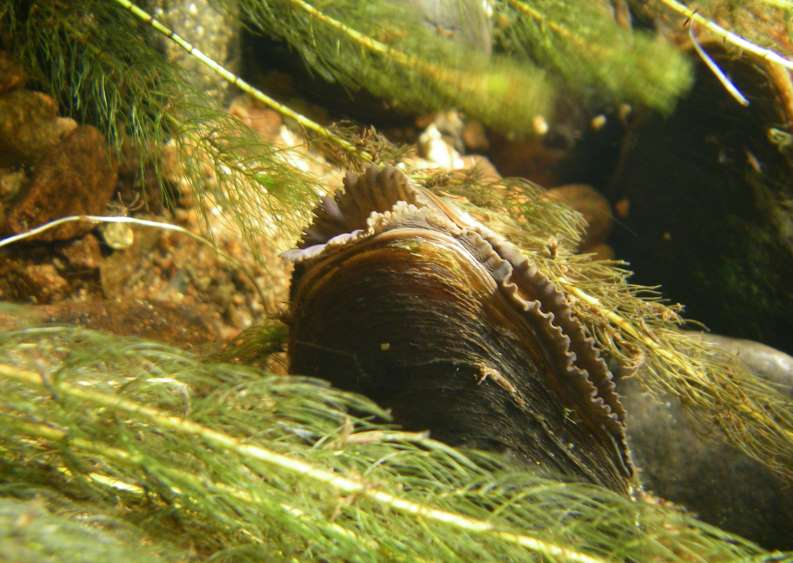Ambitious plans for future of freshwater pearl mussels in the Cairngorms National Park
Freshwater pearl mussels are one of our most important and endangered species and populations have been facing a steep decline.
In response, the Park Authority is working with partners, including The James Hutton Institute, and land managers to develop strategies which will secure a brighter future for the species.
As their name suggests, the mussels are found in our freshwater rivers and they play a crucial role in improving the water quality of rivers such as the Spey and the Dee, filtering up to 50 litres of water a day which benefits a range of other species, including salmon, trout and otters.
A feasibility study commissioned by the Park Authority and undertaken by The James Hutton Institute has suggested that conservation breeding could be a suitable step towards reinforcing the mussel population on the Dee. As pearl mussels take five to ten years to reach maturity, this will form part of a long-term Cairngorms freshwater pearl mussel recovery strategy, allowing time to work alongside land managers and the River Dee Trust to undertake extensive habitat restoration to prepare the River Dee for the adult mussels to be reintroduced.
Working closely with the Spey Fisheries Board and the Spey Catchment Partnership, the Park Authority are developing plans to move threatened populations of pearl mussels from the main stem of the River Spey to safer habitats in the upper tributaries of the river. Subject to licencing, it is hoped this work could begin as early as spring 2025.
Meanwhile on the River Dee, innovative techniques such as eDNA monitoring are being used to identify remnant populations and help pinpoint where action is needed. Led by The James Hutton Institute, this work is taking place following a report, commissioned by NatureScot and the Park Authority through the Dee Catchment Partnership, which revealed an approximate 90% reduction in the population of freshwater pearl mussels in the River Dee since 2002. The decline is thought to be caused primarily by the devastating effects of Storm Frank in 2015, where the violence of the storm not only swept much of the population away but also tore up the riverbed, leaving it highly unstable for mussels to anchor on. The current condition of the Dee makes it unsuitable for translocation of the mussels and alternative approaches are being considered.
“The freshwater pearl mussel is a highly sensitive indicator of a river’s overall health. The recovery strategy that is proposed aims to support the species from all sides, protecting the existing mussels, restoring habitat and then reinforcing the population.”
Dr Susan Cooksley The James Hutton Institute

Dee Catchment Partnership Manager and Freshwater Ecologist at the Hutton, Dr Susan Cooksley, explains, “The freshwater pearl mussel is a highly sensitive indicator of a river’s overall health. The recovery strategy that is proposed aims to support the species from all sides, protecting the existing mussels, restoring habitat and then reinforcing the population. The success of which will depend on river restoration efforts to ensure freshwater pearl mussels have healthy habitats in which to thrive.
“Catchment scale restoration is the key to resilient rivers where nature and people can thrive in the face of climate change. The Dee is leading the way with a range of ambitious projects throughout the catchment.
“The work already underway on the River Dee will prepare the way for future population reinforcements. This is being led by the River Dee Trust and Dee District Salmon Fishery Board and coordinated through the Dee Catchment Partnership, including the Cairngorms 2030 river restoration project and other initiatives.”
Cairngorms National Park Authority board member and Director of Alba Ecology, Dr Peter Cosgrove, who led the team conducting the surveys, said: “The survey highlighted the devastating effects Storm Frank had on our pearl mussel population which is why this plan is so critical. Working with our highly experienced river partnership we will first work to safeguard the remaining freshwater pearl mussels and then we can work on population reinforcement. The good news is that extensive river restoration work is already underway and we will continue to build on that work going forward.”
Work is also underway to establish the status of mussels on the South Esk and Don to inform the recovery strategy.
